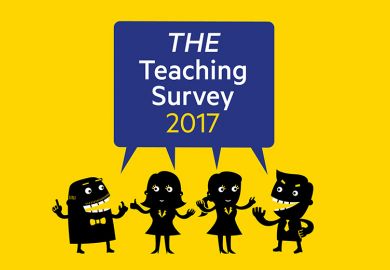University teaching staff have shared their experiences of bullying by students for research that hopes to shine a light on a “neglected area” of higher education.
In the study, academics tell stories of being cornered and intimidated by students, being verbally abused and being threatened with physical harm. Some had to call the police, while one described being frightened by overly masculine displays that led to the victim having anxiety attacks.
Some of the abuse faced by lecturers is referenced in the paper’s title, “Bullying in the academy: understanding the student bully and the targeted ‘stupid, fat, mother fucker’ professor”.
Student consumerism and a sense of academic entitlement may be driving the behaviour, which can have a lasting effect on a professor’s psyche, according to the research, published in Teaching in Higher Education.
Authors Amy May, assistant professor of communication at the University of Alaska Fairbanks, and Kelly Tenzek, clinical assistant professor in the department of communication at the University at Buffalo, in New York, decided to shine a light on how bullying can affect teaching staff in contrast to the usual focus in higher education on cases in which students are the victims.
The pair sent email and Facebook messages to acquaintances who worked in universities to ask if they had had any direct experience of a student bullying them, and to refer them to anyone else they knew in the field.
The researchers included the experiences of 20 university teachers in their analysis, which flagged up common themes in their stories.
Dr May and Dr Tenzek found that student grades were one of the most common triggers for student bullies. “In many cases, the students’ perceived academic ability is inflated compared to the reality as defined by the targeted professors,” they write, adding that students with poor grades may resort to bullying to try to boost their scores.
“Students may also engage in bullying to express entitlement as a consumer,” they add.
Dr May told Times Higher Education that there was no way to quantify the extent to which students are bullying teaching staff. “But it seems to be pervasive,” she added.
“Everyone we approached had a story – that student who targeted them in some way – and they remember these students [and] the event in vivid detail years after the fact,” she said.
Some of those interviewed described how they spent their holidays worrying about returning to work or had a sense of dread before their classes in case they contained another bully. Others said that their experiences had left them questioning their ability and reported that they had changed their teaching style to be more defensive.
“The professor psyche may be temporarily or permanently transformed as a result of the bullying experience,” the pair write in the paper.
Dr May said that there was a “huge” risk that this type of student behaviour could become more common with the commodification of higher education and warned that universities were “not doing enough to prepare teaching assistants and faculty” for this.
“We need education. We need to recognise this is a serious issue that has the potential to negatively impact teaching and learning outcomes,” she said.
Dr May said that universities could better support staff affected by providing educational resources about these issues, by putting in place policies that hold students to account, and by introducing support services for staff.
Register to continue
Why register?
- Registration is free and only takes a moment
- Once registered, you can read 3 articles a month
- Sign up for our newsletter
Subscribe
Or subscribe for unlimited access to:
- Unlimited access to news, views, insights & reviews
- Digital editions
- Digital access to THE’s university and college rankings analysis
Already registered or a current subscriber?






